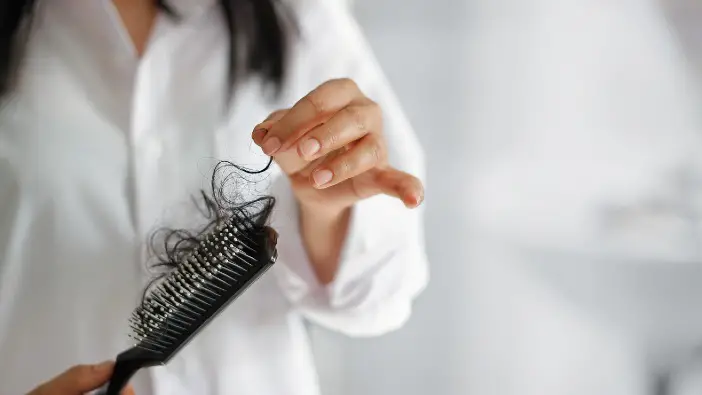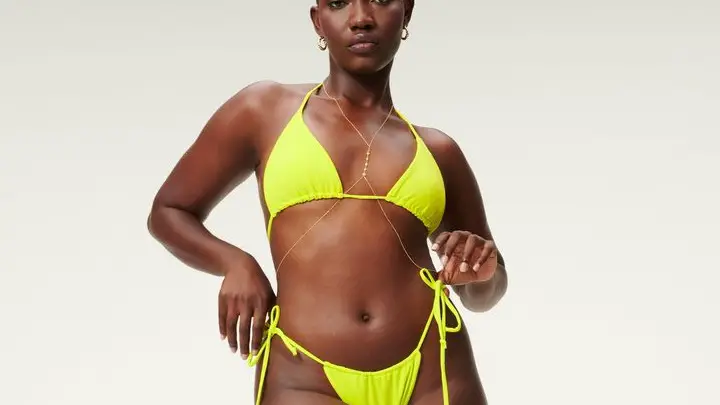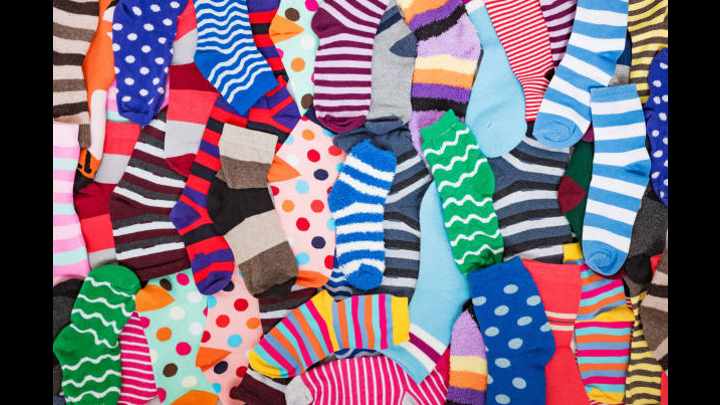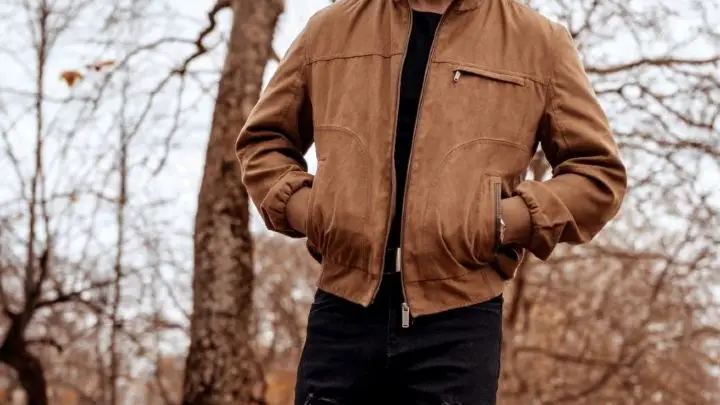Thinning hair is largely becoming a menace to either sex. Though, hair loss starts as a natural process while we wash or comb our hair. Also, as we age, our hair naturally begins to lose volume and strength.
The American Academy of Dermatology (AAD) says that people naturally lose 50-100 hairs each day and new hairs grow again.
However, when the hair begins to lose weight or large chunks of hair begin to fall off daily, it becomes a deep concern.
Hair loss can go as far as reducing self-esteem and ruining a woman’s chances of wearing certain hairstyles. As for men, it could also be a source of constant concern as they age.
Thinning hair, also known as alopecia, happens due to different reasons and there are a good number of available treatment options.
This article will discuss the reasons why you may be having thinning hair and what you can do about it.
Let’s get started.
How Do I Know My Hair Is Thinning?
There are a couple of ways to determine if you’re having thinning hair. These include:
- Hairs lying around
- Sunburns on your scalp
- Hair doesn’t hold its style
- Receding hairline
- Bald spots on the scalp
- Reduction in hair volume and density
- Hair loss around the crown
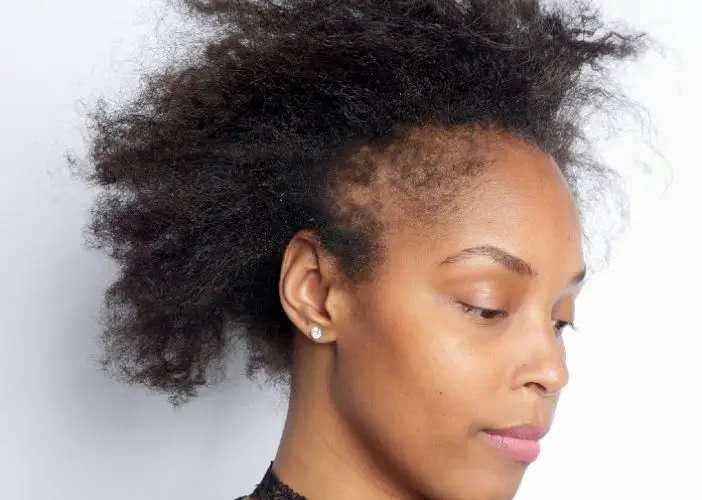
Causes of Thinning Hair
As mentioned earlier hair loss could be for several different reasons. The symptoms of thinning hair characterize the various causes. And these causes define the nature or type of hair loss.
The causes of alopecia include:
Genetics
Just like traits are inherited from parents, hair loss is also inherited. Inherited hair loss is also known as Androgenetic alopecia. Nicole Rogers, M. D., says “this is the most common cause and pattern of hair loss; affecting about 50% of women”.
Androgenetic alopecia also affects about 80% of men. In men, it appears as a receding hairline and hair loss around the crown and eyebrows. Women usually experience this hair thinning at the age of 40 and over with all-around thinning especially around the crown and the eyebrows.
In addition, the tendency increases with age, though; some people experience this hair loss in their teenage years.
Age
Age is also a natural cause of thinning hair. As people age, life processes in the body slows down. In the same vein, hair growth slows down with age. Hair follicles enter the resting phase and as a result, the hair shortens and becomes fewer.
Itchy scalp
When fungi invade the scalp, it can cause an itchy scalp which can subsequently damage hair follicles and cause hair loss. Also, allergic reactions of the scalp to certain hair care products can lead to hair loss.
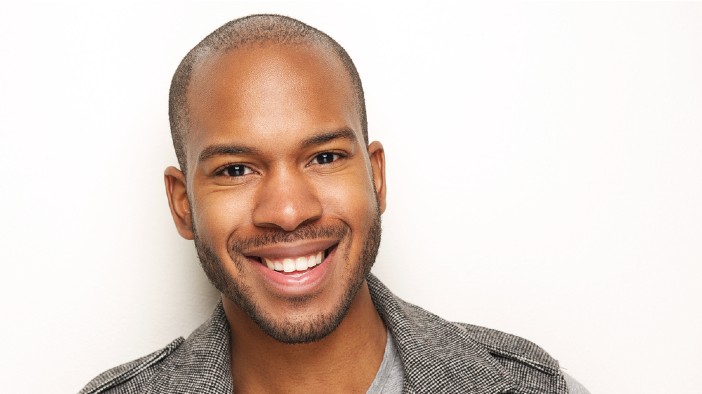
Diseases
Health conditions like alopecia areata, an autoimmune disease that causes hair loss. This condition sets when the body’s immune system attacks the hair follicles. Other body parts like the eyebrows, eyelashes, inside the nose, and ears experience this hair loss.
Additionally, health issues like thyroid diseases- hyperthyroidism and hypothyroidism can also cause hair loss, especially around the eyebrows. It comes with hair lying around especially while combing or brushing.
Medications
Too much or too little intake of certain medications can lead to hair loss. Chemotherapy, for instance, causes hair loss because of the exposure of the skin or concerned body parts to radiation. This usually begins few weeks into medications.
Furthermore, medications for diseases like gout, high blood pressure, and heart problems can cause thinning of hair. High intake of vitamin A, deficiency of vitamins like biotin (B9), and vitamin D also play key roles in thinning hair.
Hormonal changes
Pregnancy and childbirth are common causes of thinning hair seen among women. The hormonal changes during pregnancy and the stress of childbirth are contributors to hair loss. Hair falls off while brushing, combining, or washing.
During menopause, estrogen and progesterone levels fall and the level of androgen increases simultaneously. As a result, hair follicles shrink and thinner hair regrows and yet falls out easily.
In addition, hormonal changes in both men and women during body changes like weight loss can also trigger hair loss. Discontinuing birth control pills can also cause alopecia. These conditions make hair falls off and leaves patches on the scalp.
Learn More: 4 Causes of Hormonal Hair Loss
Haircare and styling
This cause is predominant in women and maybe men, those who wear braids. Haircare practices like coloring and relaxing your hair are quite harmful to the hair. Subsequently, they can cause hair loss.
Similarly, manipulative and tight hairstyles can pull at your hair and cause traction alopecia. Hair follicles gradually become weak and hair falls off while loosening the hair or during washing and combing.
Treatment of Thinning Hair
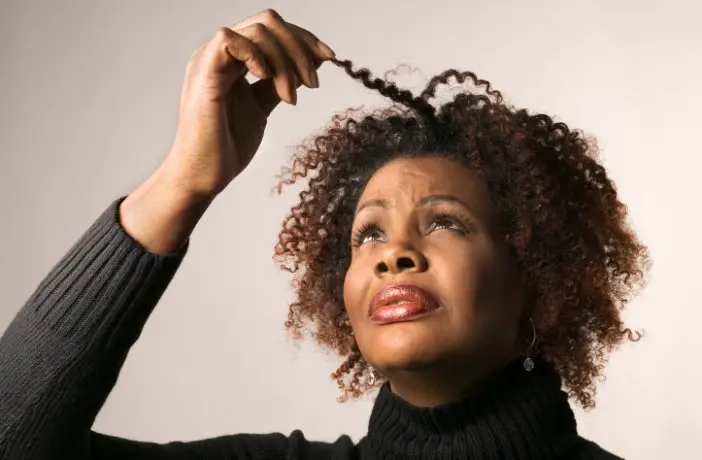
Although thinning hair may not always be linked to an underlying health issue, it’s valid to be concerned. You can go ahead to seek a dermatologist’s medical knowledge.
Treatment differs with the severity of hair loss. According to prescriptions, you might need a cosmetic or surgical procedure, topical treatments, home remedies, or even a change of lifestyle.
1. Cosmetic or Surgical Procedures for Thinning Hair
Hair transplants
In some cases, there may be a need for a hair transplant. Dermatologists say this procedure can either be as Follicular Unit Transplantation (FUT) or Follicular Unit Extraction (FUE).
FUT involves the removal of skin from the back of the scalp where there is abundant hair. The follicles underneath the skin are removed and reinserted in the hair follicles of areas of thinning hair.
On the other hand, the process of FUE is more direct. Hair follicles from the scalp where there is abundant hair are directly transplanted to the thinned or bald areas. This surgical process can be done on both men and women with thinning hair.
Most importantly, you need to consult with a dermatologist to know if either of these processes is safe for you. The American Academy of Dermatology (AAD) says the surgery takes about 4 to 8 hours and can give lasting results.
Low-level laser therapy
AAD recommends this procedure for cases like alopecia areata, androgenetic alopecia, hair loss from chemotherapy, and hair transplant healing. Also, you may need to undergo this procedure several times a week and for months for significant results.
In addition, this procedure works by enhancing blood circulation to the scalp and stimulating the growth of hair follicles.
2. Topical and OTC Treatments for Thinning Hair
Minoxidil (Rogaine)
Dendy Engelman, M.D., a board-certified dermatologist explains that “Minoxidil’s mechanism of action is believed to be due to an effect on the calcium channels in the hair cells.”
Minoxidil is the first product that the U.S Food and Drug Administration (FDA) approved to treat hair loss. Rogaine, a brand of minoxidil, works effectively in both men and women experiencing thinning hair.
In addition, rogaine is readily available over the counter in liquid or foam form. It works by widening the hair follicle. As a result, much thicker hair grows. Mayo Clinic says it can take up to 16 weeks before you see a significant effect.
However, rogaine may cause skin irritation and hair growth on other parts of the body like the face and cheeks. And, unless it becomes a permanent treatment, hair loss will reoccur.
Finasteride (Propecia)
Finasteride is also officially approved by the FDA as a medication for hair loss.
Unlike Rogaine, Propecia is a daily pill. It works for only men experiencing thinning hair. Women are strongly warned to stay off this medication especially when pregnant or nursing.
Similar to rogaine, Propecia has its side effects. It can lead to erectile dysfunction and the growth of breast tissue.
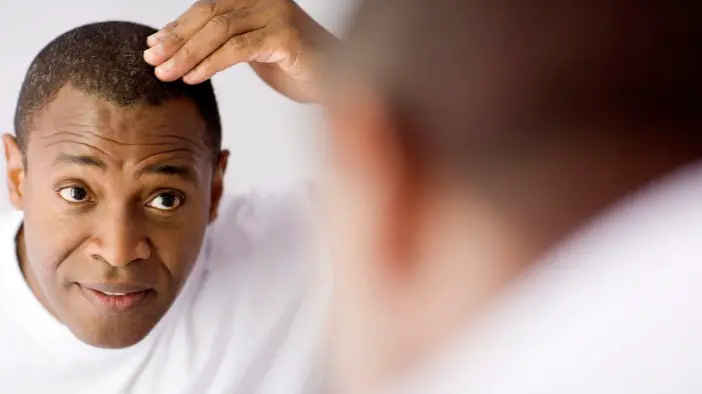
3. Lifestyle Changes
Certain habits may be responsible for thinning hair. If these lifestyles are avoided and/or discontinued, it could be a good step for treating hair loss.
Quit smoking
The wreck of smoking on the lungs, heart, and other body parts is more pronounce and it overshadows the effect on hair growth. Smoking restricts blood flow to body organs. In the same vein, it restricts blood flow to hair follicles.
When hair follicles do not get the necessary nutrients for hair growth, they prematurely enter into the resting phase. As a result, hair becomes thin and vulnerable to breakage.
Avoid and curtail stress
Stress can interrupt your hair follicles’ growth cycle. And as a result, hair goes into the shedding or resting phase sooner than normal. Consequently, your hair may lose weight and have receding hairlines may set in.
So, try to cut down on the stress and activities that may wear you out psychologically. Exercise regularly. Get enough sleep.
Adopt a balanced diet
The hair needs nutrients as much as the body does. Avoid and discontinue weight loss or diet crashing. On the other hand, cigarettes, excess alcohol consumption, and caffeine take nutrients from the body and this can, in turn, affect hair growth.
To sum it up, discontinue these actions that must have probably led to hair loss. You should also adopt foods that are rich in iron, biotin, protein, and omega-3 fatty acids. And, drink a lot of water.
Hairstyling and care
Staying away from manipulative hairstyles and certain hair care products can be good for alopecia. Avoid chemical-based relaxers, alcohol-based shampoo, fragrances, salt sprays, and heat protectants.
Also, intentionally avoid touching and aggressively scratching your hair. During drying, try not to wangle it. These innocent actions can pull out or break your hair.
Learn More: Best Conditioner Products To Boost Your Hair Growth
Change medications
Medications like those used for chemotherapy, gout, high blood pressure, and heart diseases play key roles in alopecia. So, you should consult your doctor to find out if there is a milder substitute.
4. Home Remedies for Thinning Hair
A couple of home practices have been found effective in the treatment of hair loss and they cost very little. Some of them are:
Scalp massage
Scalp massage is not only soothing; it is also therapeutic to hair follicles. It aids blood circulation, hence, stimulating hair follicles for hair growth. A scalp massage has no side effects and it costs nothing.
After washing your hair, apply a little pressure on your scalp using your fingertips. Also, you can get rid of dead cells using a scalp massager.
Hair-healthy foods
Certain nutrients stimulate and enhance hair growth. Consume hair-boosting foods like eggs which are a rich source of biotin (B7) and protein, omega-3 foods like fatty fish and walnuts, omega-6 foods like plant-based oils.
Also, multivitamins are essential for hair growth.
Essential oils
Essential oils help to boost hair growth. Oils like rosemary oil, lavender oil, thyme oil, and peppermint oil can help to improve hair growth and scalp health. They work to stimulate blood circulation to hair follicles through scalp massage.
Anti-thinning shampoo
Anti-thinning shampoo adds to hair volume and makes your hair thicker. These shampoos are formulated with vitamins and amino acids that increase scalp health and stimulate hair growth.
Many shampoos are available for treating thinning hair but some are exceptional.
Pura D’Or Original Gold Label Anti-Thinning Biotin Shampoo contains biotin, argan oil, aloe, vitamin E, and tea tree oil that work together to protect your scalp from irritation and itchiness, promote new hair growth while fighting hair loss.
Additionally, the oils keep your hair hydrated and repair damaged scalp and hair strands.
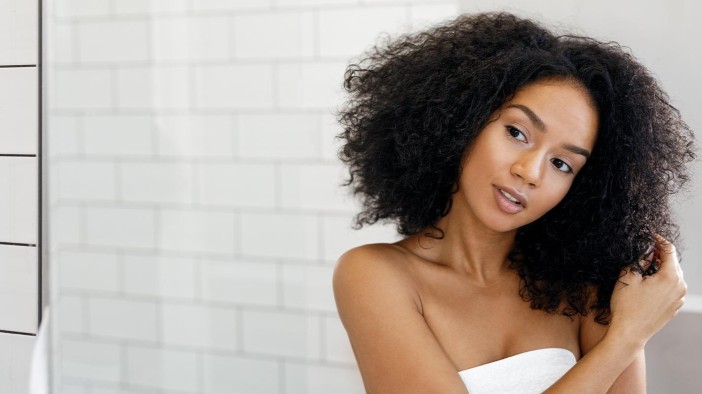
FAQs on Thinning Hair
Why is my hair thinning?
Your hair could be thinning for different reasons. Hair loss could be hereditary or a result of aging, hormonal changes, stress, poor diet, hairstyling, or a medical condition. But, thinning hair is not always a severe condition.
Why do I have thinning eyebrows?
Thinning eyebrows could be a result of certain medical conditions like thyroid disease, alopecia areata, nutritional deficiencies, and skin conditions like eczema. Other factors like stress, excessive tweezing, and the application of certain makeup products can make eyebrows go thin.
Can thinning hair be reversed?
Yes, thinning hair may be reversed under certain conditions. Reversal depends on the cause of hair loss. Thinning hair causes like genetics cannot be reversed. Hair loss due to stress and pregnancy, on the other hand, could possibly be reversed if necessary treatments follow.
Does thinning hair mean I am balding?
Thinning hair doesn’t necessarily mean you are going bald. Before balding is confirmed, factors like areas of thinning and whether the hair follicles are shrinking or not has to be examined first.
Conclusion
Thinning hair, alopecia, as harmless as it may seem from the start, could be quite a big deal for some. Even worse, it could lead people into depression. Dermatologists and other healthcare providers have come up with effective treatments for hair loss.
Most importantly, any treatment option you’re going for should be prescribed and followed through for effective results. Home remedies are also available for the treatment and management of thinning hair, most especially for non-severe cases.
Above all, a healthy diet plan is just as important for hair growth as it is for healthy skin.
Check Africana Fashion for more relevant articles on beauty and wellness.
Thanks for reading.
